
Gas crisis - what to do? How to prepare for a long-term gas outage in Germany
👉 The key facts from this guide
- Understand what a gas crisis is and what impact it could have. It can strongly influence your life, especially when it comes to heating and cooking.
- Be aware of the causes of a gas crisis. The war in Ukraine and Russia has led to a gas shortage, affecting supply.
- Prepare for possible power outages. Charge all your electronic devices and ensure you have enough batteries.
- Prepare for cool nights. Consider alternatives to heating if it fails.
- Look for alternative cooking and heating methods. Camping stoves and gas heaters can be an option, but they should not be used indoors.
- Develop an action plan in case of a gas crisis. Prioritize what needs to be done and find alternative solutions to meet your needs.
The Ukraine conflict is causing a persistent gas crisis in Germany.
Experts warn that there may not be enough gas to supply all people and industry.
This has led many people to consider the possibility of a long-term gas outage – but knowledge is limited and scattered among the population.
If the gas supply is interrupted or significantly reduced, your life will be turned upside down.
Many people in Germany are confused and unprepared for a long-term gas outage. They are afraid of how they will cook food or even heat their homes during the winter months.
In this guide, I will show you how to prepare for a long-term gas shortage in Germany.
What is a gas crisis?
A gas crisis is a situation where there is a shortage of gas that leads to a shortage of other goods and services. This shortage can be caused by war, terrorist attacks or natural disasters.
One reason for the gas crisis in Germany is the Ukraine-Russia conflict. Less and less gas is flowing through the pipelines to Germany, and prices are rising.
Even though there is still enough gas for household supply, some tenants are already noticing an increase in their utility bills. Many landlords have asked their tenants to pay more in advance.
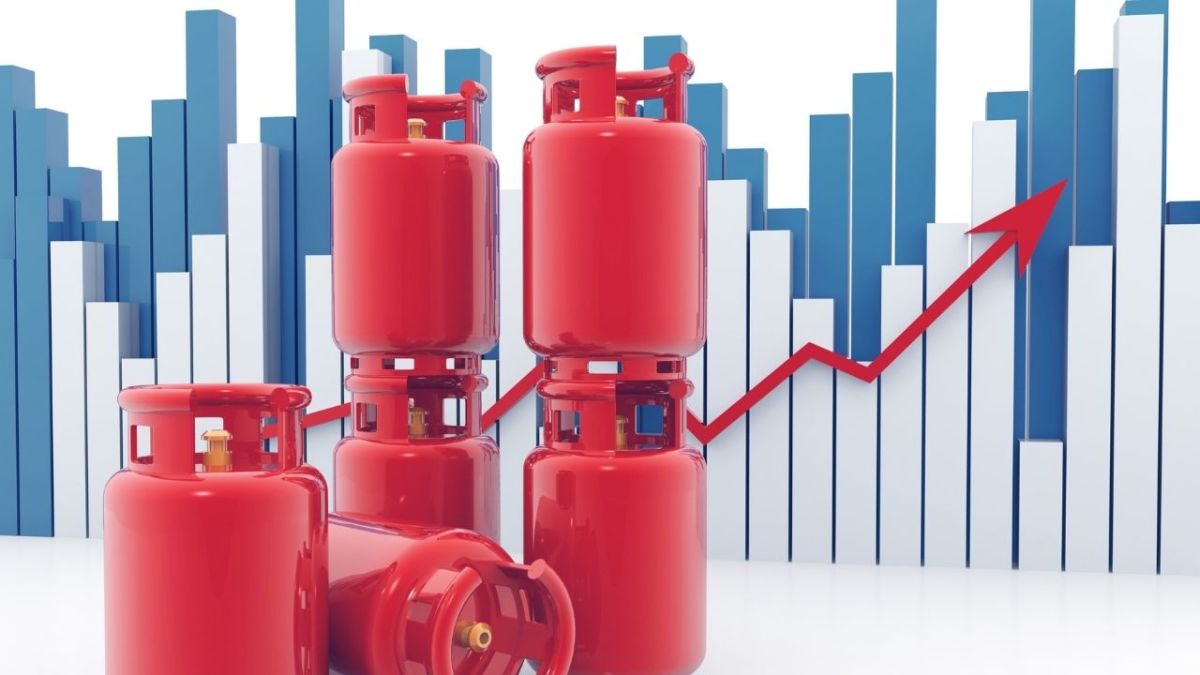
What are some causes of the gas crisis?
The war in Ukraine and Russia has led to a gas shortage. The crisis is due to the increasing demand for gas, the failure of gas production and the war.
Gas pipelines are interrupted by the conflict, leading to a reduction in supply.
Russia is one of the largest gas producers in the world and supplies Germany with natural gas at three entry points. The largest flow is at the Greifswald (RUS) entry point (Nord Stream 1), followed by Mallnow (PL) and Waidhaus (CZ).
And Russia has power through its gas sales to Germany, especially to exert pressure.
For example, in 2006, Russia used its natural gas as a weapon against Ukraine, when it stopped deliveries to the Ukrainian government after disagreements in overprices.
But sanctions by the EU against Russia can also worsen the gas shortage. Europe wants to exert pressure and urge an end to the war.
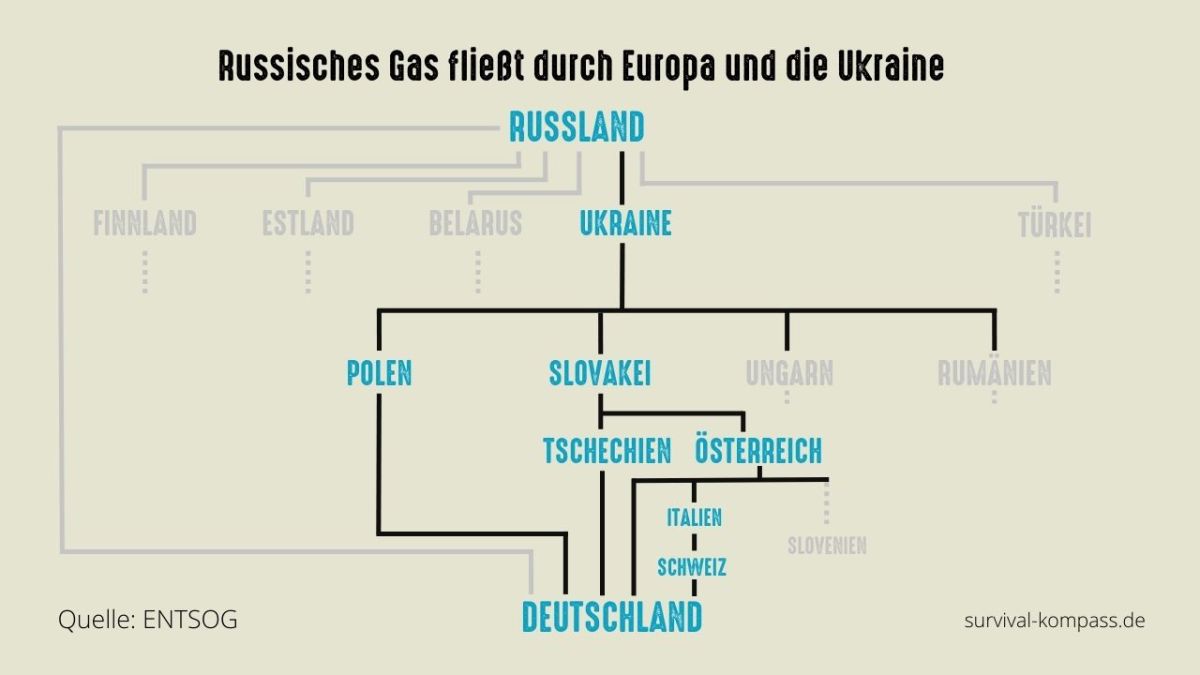
What Happens If Gas Fails?
The consequences of a gas failure are massive. There are many possible outcomes, but the most likely is that people will be left without heating, cooking, and hot water.
Public transportation will be severely affected, meaning people will not be able to get to work or school.
The gas shortage will also impact electricity and utility companies such as water and sewage systems.
In addition, food production will cease because there will be no gas to power the machinery in agriculture or food processing.
Other industries will also be unable to produce, including the chemical, paper, steel, and glass industries.
In my guide "Preparing for Food Scarcity: Foods that Will Become Scarce or Expensive During the Ukrainian Conflict" I discuss which foods are influenced.
But I want to avoid spreading panic because Germany regularly consults and prepares for gas scarcity, including developing the first emergency plans for gas consumption.
Furthermore, gas imports from Russia have already decreased from 55% to 44% nationwide. This indicates that we can also partially do without gas. Nevertheless, completely giving up Russian gas remains a giant undertaking.
In addition, according to statistics, 35% of all crude oil imports and 50% of hard coal still come from Russia. It should become clear to you that we are dependent on Russia. If these fuels run out completely, a blackout (prolonged power outage) is not far away.
Emergency Gas Plan for the Federal Republic of Germany
If Putin turns off the gas tap, various warning levels of the federal government come into effect one after the other.
The following warning levels exist:
- Early warning level: deterioration of gas supply (in force since the end of March 2022).
- Alarm level: comes into effect when there is a disruption in gas supply.
- Emergency level: means that the disruption is significant, and no gas is available.
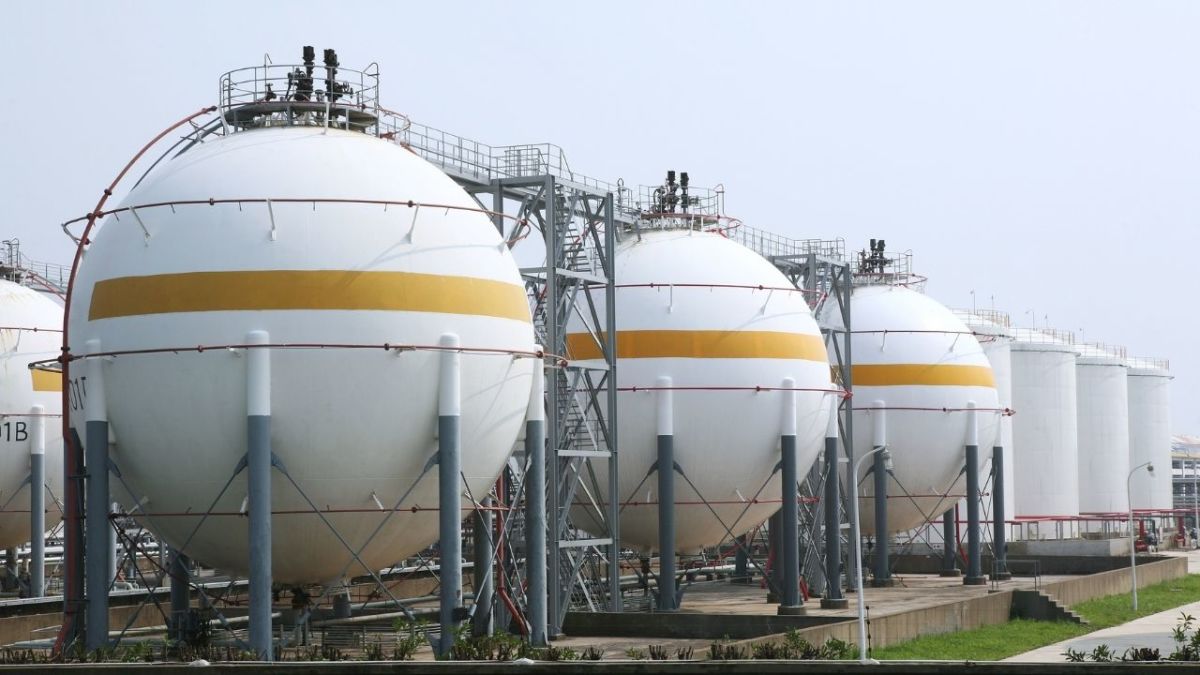
The Federal Network Agency in Bonn is responsible for these processes and must decide which gas supply will be discontinued or reduced at the warning levels.
According to the Federal Network Agency, however, there is a specific order of who or what will then only be supplied with gas to a limited extent or not at all.
Thus, the "final consumers in the natural gas distribution network" are prioritized as "household customers for heating purposes".
This is followed by "basic social services within the meaning of Article 2(4) of Regulation (EU) 2017/1938 in the natural gas distribution network and the transmission network". These are "services in the areas of health care, basic social care, emergency, security, education or public administration", such as hospitals, street cleaning and garbage collection, as well as public transportation and airports.
Finally, the district heating plants (gas-fired power plants) are supplied with natural gas so that they can provide households and social services with district heating.
At first, this doesn't sound too bad for citizens in their homes, as they are prioritized with gas supply. However, there are already voices calling on citizens to reduce their gas consumption.
Klaus Müller, the new head of the Federal Network Agency, was asked whether saunas and large single apartments could still be heated constantly in the future. His response was:
"No, I believe that this would not be justifiable in a gas emergency." (source)
As you can see, you should also expect restrictions here if a gas crisis hits us.
4 things you should do this weekend to prepare for a gas crisis
1. Check your emergency equipment
Make sure you have water, durable food, a battery-powered or hand-crank radio (here's my buying guide for crank radios), and a first-aid kit. You should also include items like blankets, matches, candles, medication, cash, and traveler's checks, and copies of important documents in your emergency kit.
In my comprehensive guide to the emergency supply list, you will find my recommended items. You should also get a bug-out bag that contains all the essential items in case you have to leave your apartment.
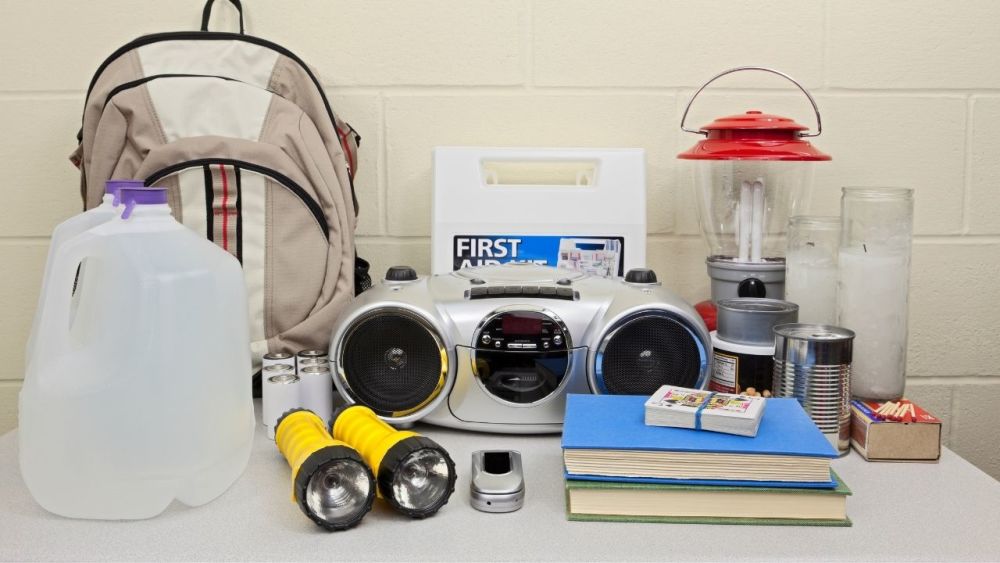
2. Prepare for power outages
Charge all your electronic devices (and power banks) now, so they are ready when the power goes out for an extended period (a blackout), and make sure you have enough batteries for flashlights and radios.
3. Prepare for cool nights
Every second household in Germany heats with gas, so it is possible that heating systems may fail. Families with small children and our elderly citizens are particularly affected here.
For example, infants need a constantly well-heated apartment or a warm bed. So be prepared by getting wool blankets and maybe thinking about an alternative heating option. In my guide "9 ways to stay warm without electricity and heating", you will find more help.

4. Find alternative cooking and heating methods
Although camping stoves and gas heaters should not be used in enclosed spaces, it is still possible to warm up your food or even heat rooms. Read my guide "Can camping stoves also be used indoors?" and also check out how to cook without fire, electricity, and gas.
If you want to prepare properly, it is advisable to look into emergency heating systems, such as radiant heaters, infrared heating, fireplaces, or stoves.
5. Use alternatives for minimal device supply
With modern equipment, electricity can be generated to charge a smartphone or power a PC. Special solar generators, which consist of a large power bank and solar panels, have proven themselves.
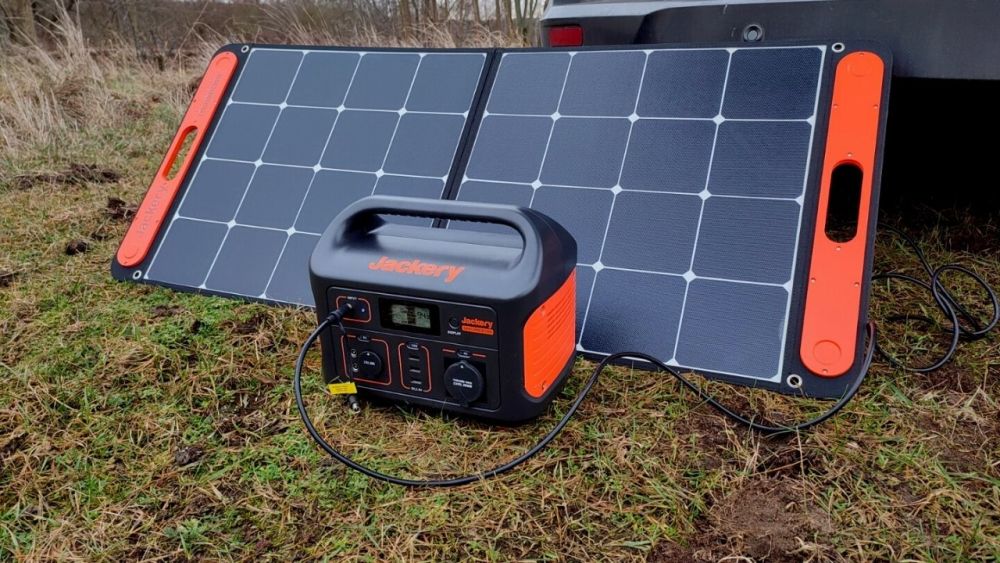
Also read
The Best Power Stations for Camping, Road Trips, and Power Outages - Get power wherever and whenever you need it with a portable power station. We tested the top power stations to find the best one.
3 things to do when the gas crisis hits spontaneously
1. Take control
How do you survive a gas crisis? Take control of the situation!
Fear of a gas shortage is normal. The thought of not being able to live your daily life or take proper care of your family is intimidating. The trick to keeping fear at bay is taking control of the situation.
No, you can't control the gas shortage - but you can control how you react to it. Taking control of the situation will help you reduce fear at the moment. Taking control will help you respond with a clear plan, and possibly help you avoid future crises by developing a long-term plan.
2. Stay calm and take care of immediate needs
When a crisis occurs, whether it's a gas shortage, pandemic, or weather-related incident, the most important thing is to stay calm and take care of your most urgent needs. Once you know you are safe for the moment, you create a plan.
Here's what it looks like in a gas crisis:
Make sure everyone is safe. Is everyone where they need to be? Does someone need to come home from far away or be taken to a place where they can survive the gas shortage?
Does everyone (and your pets) have an adequate supply of medication (check out my guide to medication lists)?
Is there a potential or existing illness that may require medical emergency care? Do you have enough gasoline/diesel to get this person to the hospital and back home? Are all other first aid needs covered?
Also read
What You Need to Know About Long-Term Gasoline Storage (Durability, Regulations, Tips) - Long-term gasoline storage requires careful consideration to ensure that it is safe, effective, and legal. So, what should you be aware of?
3. Create an action plan
Once you have taken care of immediate needs, you can now begin to develop an action plan. Knowing how to deal with the crisis will give you a sense of control.
First, prioritize what needs to be done, and determine which needs can wait until the crisis is resolved.
Removing things from the "must" list will reduce tension and pressure in the situation.
Find alternative solutions to meet the "must" list. In a gas shortage, you may team up with neighbors and carpool to run errands.
Use what you have on hand and be satisfied with what you own.
Conclusion: A gas crisis can be mitigated with the right preparation
Gas is an important commodity that we consume in daily life. It powers our industry and power plants and provides us with heating and cooking facilities. So, what happens when there is no gas available?
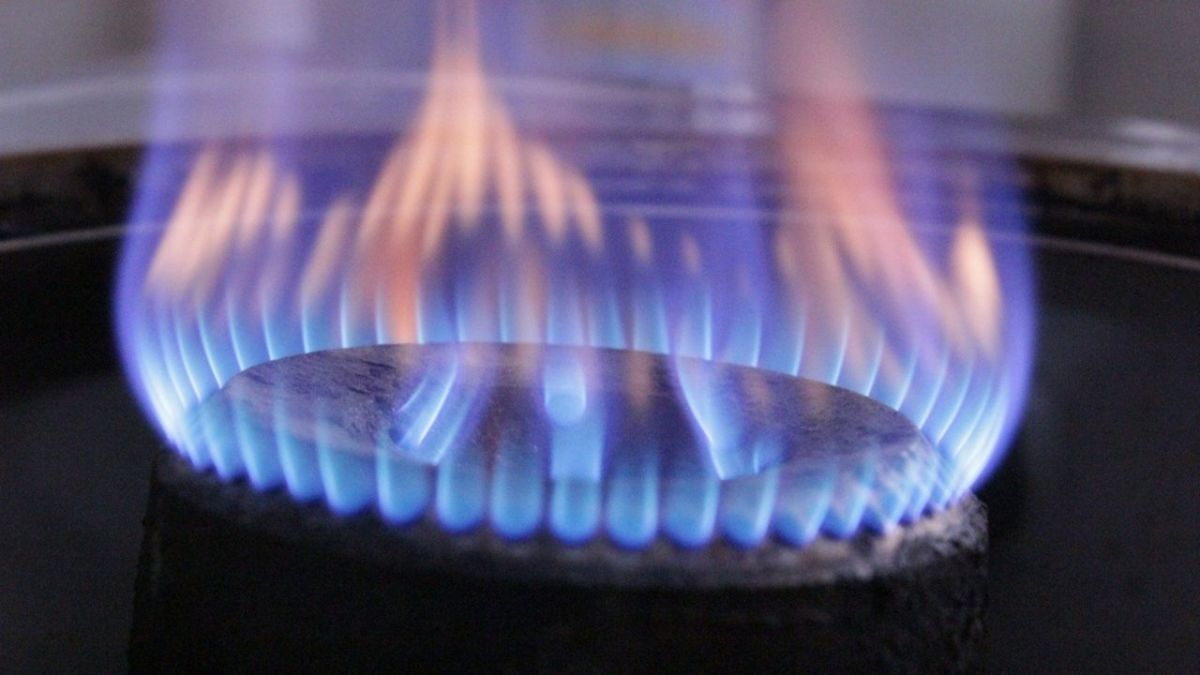
This is a question that many people ask themselves when thinking about their future and the possibility of a gas crisis. But the truth is, preparation in this situation can make all the difference.
The right preparation can help cushion a gas crisis, allowing people to live their lives as normally as possible while waiting for the gas supply to return to normal.
The most significant thing in any crisis is to remain calm. Having a plan and knowing what to do will help you think clearly when a situation arises.
Basically, dealing with a crisis starts with fulfilling your immediate needs, creating an action plan to deal with the situation, and making long-term changes to avoid problems in the future.
And there are things you can do now to prepare for a gas shortage: put together an emergency kit. It contains all the important things, like food, water, cooking facilities, and light.

Sources for the guide
https://www.berliner-zeitung.de/news/notfall-plaene-so-kommt-berlin-ohne-russisches-gas-aus-li.222021
https://www.bundesnetzagentur.de/DE/Fachthemen/ElektrizitaetundGas/Versorgungssicherheit/aktuelle_gasversorgung/start.html
https://www.spiegel.de/wirtschaft/bundesnetzagentur-chef-sauna-verbot-und-einschraenkungen-fuer-singles-moeglich-a-19a95e8c-8e04-4efe-99d9-feb33bb0062d
https://graphics.reuters.com/UKRAINE-CRISIS/GAS/gdpzynlxovw/
Weiterführende PDF-Dokumente (Stand 13.4.2022):
https://survival-kompass.de/pdf/notfallplan-gas-bundesrepublik-deutschland.pdf
https://survival-kompass.de/pdf/Gasversorgung-EU-CELEX_32017R1938_DE_TXT.pdf
https://survival-kompass.de/pdf/220412_lagebericht-gasversorgung.pdf

Author of the guide
Martin Gebhardt
Hey, I'm Martin. On my blog, you will learn the basics and numerous details about living in the wild. I think survival, bushcraft and the good life in nature are the keys to happiness. Find me here on Instagram or on YouTube. You can find more about my mission on the About Me page.
Was this guide helpful?
20 people found this guide helpful.
4.64 out of 5 points (22 Ratings)
Comments (0)
This post may contain affiliate links. So if you click on the links and make a purchase, I will receive a small commission at no additional cost to you. Click here, to learn more about it.


